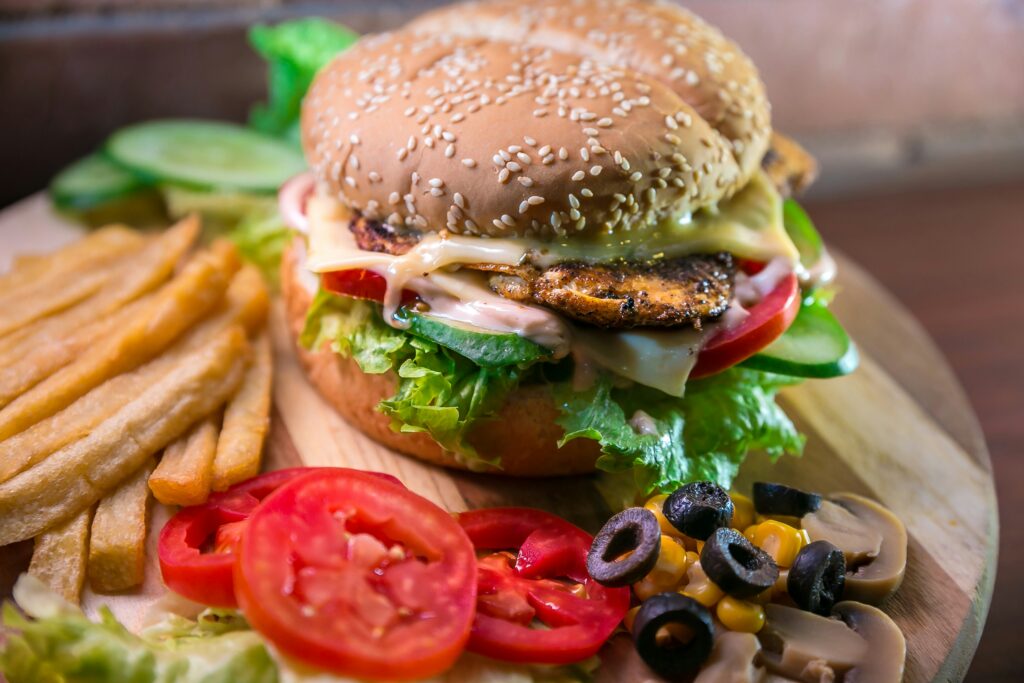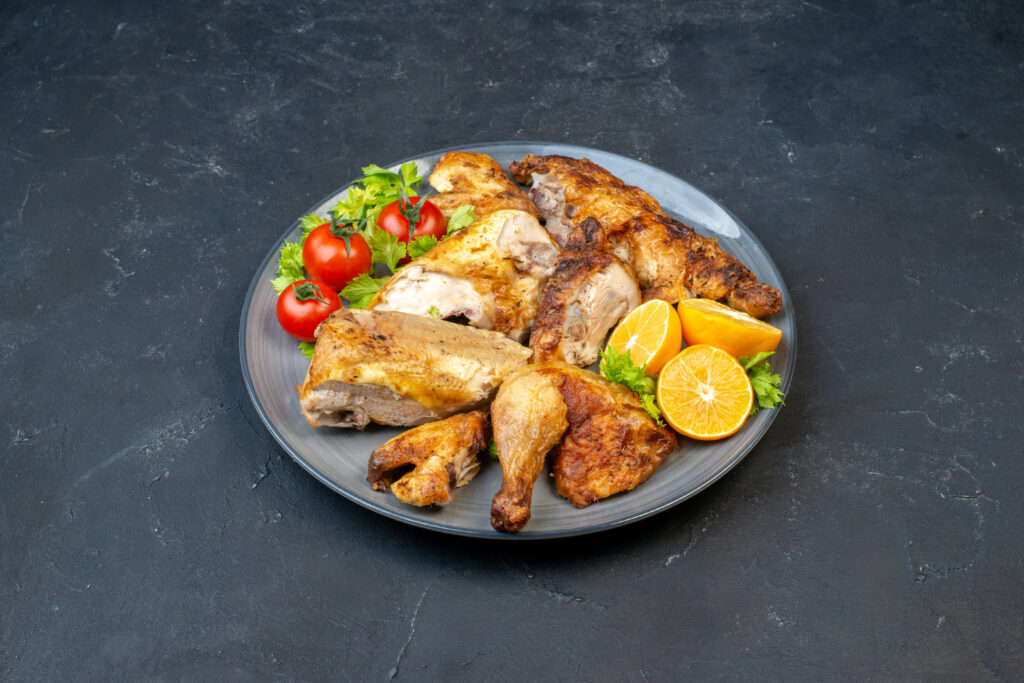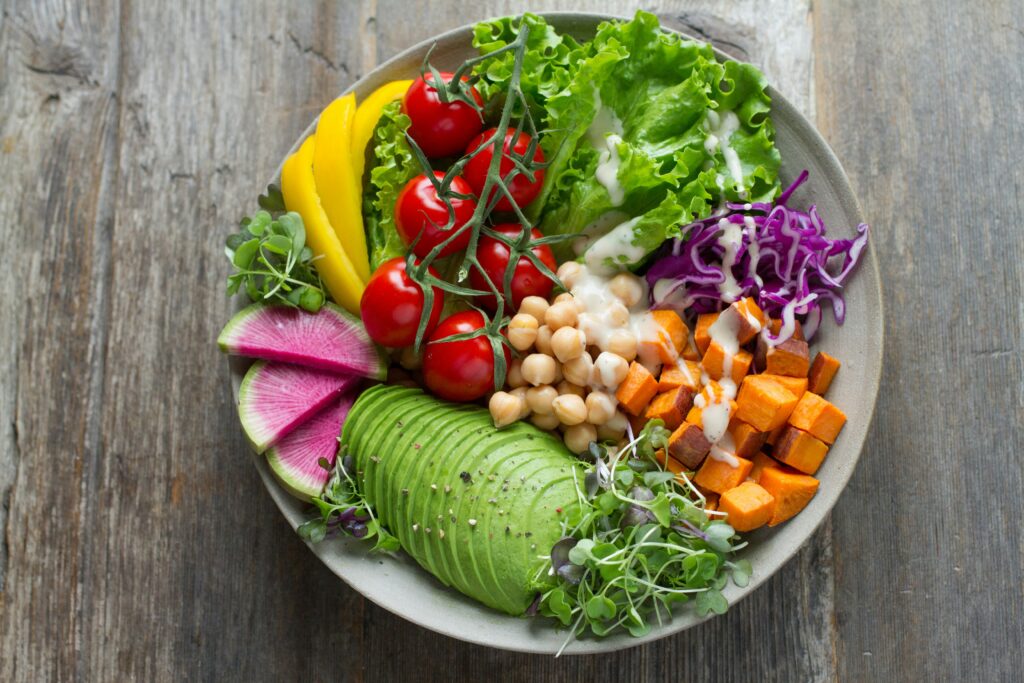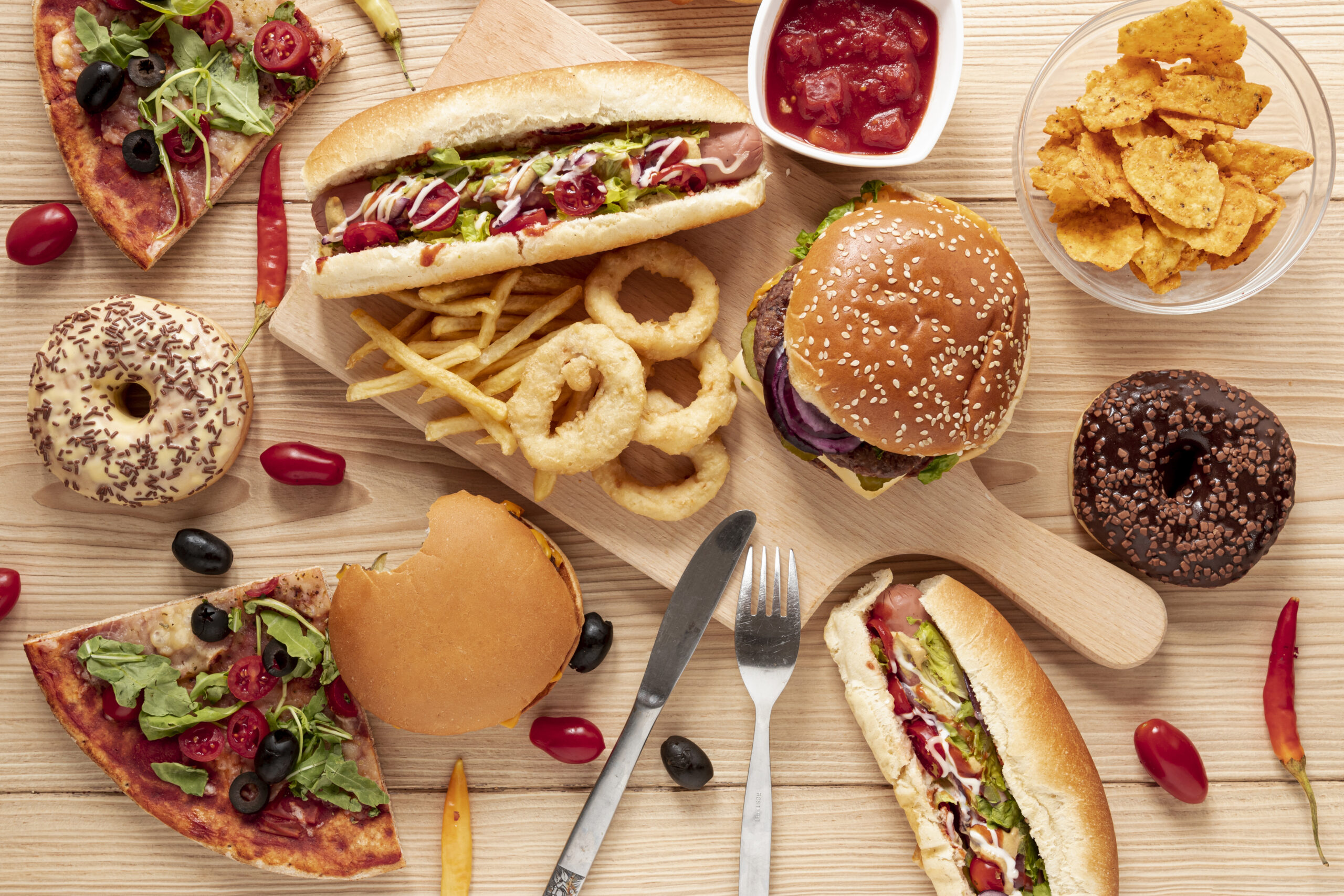It’s 8:45 p.m. You’re finally done with that presentation, your inbox is a warzone, and the fridge is echoing emptiness. Enter the savior: your go-to fast food joint. It’s quick, it’s tasty, it doesn’t ask questions.
But here’s the bigger question: Is fast food really bad for you—or just misunderstood?
As a generation juggling deadlines, rent, relationships, and (hopefully) self-care, we often find ourselves relying on convenience. So let’s cut through the guilt and confusion and get real about fast food, your health, and smarter choices.
The Nutrition Reality Check
Let’s break down what’s often lurking in your late-night burger run:
- Calories on Overdrive: A typical fast food combo can exceed 1,200–1,500 calories—more than half of many adults’ daily needs.
- Sugar + Sodium Bomb: Think sauces, buns, fries, and sodas. Regular intake can raise blood pressure and blood sugar.
- Fats That Mess With Your Heart: Trans and saturated fats increase your risk of heart disease—especially if you’re mostly desk-bound.
“It’s not just about gaining weight,” says Dr. Anjali Reddy, a preventive health specialist. “It’s about what you’re not getting—fiber, essential vitamins, healthy fats. That nutritional imbalance is what creates long-term damage.”

Common Health Risks for the Fast-Food-Fueled Life
If fast food becomes your primary food group, you could be facing more than bloating or a post-lunch slump. Here’s what studies link it to:
- Metabolic Syndrome (a cluster of conditions including high BP, high sugar, belly fat)
- Type 2 Diabetes
- Chronic Fatigue and Mood Swings
- Digestive Issues
- Skin breakouts and inflammation
And yes, even mental fog and reduced productivity—something no young professional wants.
Is Fast Food Always Bad? Not Quite.
Not all fast food is created equal—and not all of it is evil.
Many chains have stepped up their game, offering:
- Grilled proteins over fried
- Salads, brown rice, multigrain wraps
- Transparent calorie counts
- Vegan and dairy-free options
And let’s be honest: ordering a burger once in a while won’t ruin your health. What does matter is how often you eat it, what you pair it with, and whether it becomes your default coping mechanism.

The Balance Blueprint: Fast Food on Your Terms
You don’t need to give it up. Just be strategic. Here’s how:
🕒 Plan your chaos: If your week is packed, pre-decide healthier fast food options you can default to.
🍗 Go grilled, not fried: Opt for grilled chicken, paneer, or fish where possible.
🥗 Add color: Add a side salad, skip mayo-heavy dressings.
🥤 Ditch the soda: Go for water, sparkling water, or unsweetened iced tea.
📱 Use apps smartly: Most chains now offer nutrition filters—use them.
💡 Keep emergency snacks at work: Nuts, protein bars, fruits can prevent desperate fast food runs.

The Verdict: Mind Over Menu
Fast food isn’t your enemy—it’s a tool. Like any tool, it’s best used with care. If your lifestyle is already demanding, the key is not to pile on stress through poor nutrition.
So, is fast food really bad for you? Only when it replaces mindful eating instead of supporting it. Choose consciously, eat intentionally, and let your meals work for your hustle, not against it.
Because at the end of a long workday, your body deserves more than just quick fixes—it deserves fuel.



